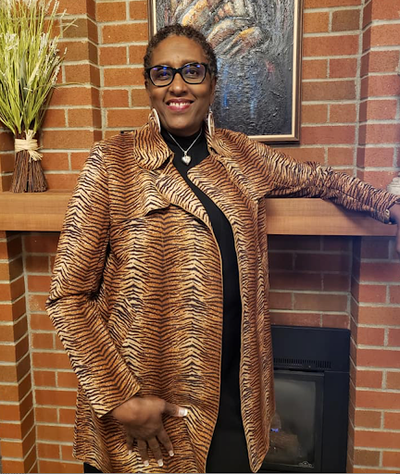Victims of domestic violence and sexual assault endure far more than physical harm. They live with words that cut deeper than bruises – words meant to break the spirit. “This is your fault.” “No one else will ever love you.” “You’re worthless.” “If you leave me, I’ll hurt you and the kids.” “That never happened – you’re imagining things.”
These phrases spoken about far too often are heard in our community. They are not just cruel insults, they are calculated tools of control, repeated until survivors begin to doubt themselves, lose their confidence, and feel trapped with nowhere to turn.
Have you heard of MiA? MiA – Mujeres in Action, founded in 2018, is the region’s first nonprofit dedicated to providing culturally responsive services to Latine survivors of domestic and sexual violence. From counseling to housing and advocacy, MiA has been a lifeline for families who are too often overlooked.
Recently, I had the privilege of attending MiA’s four-day training to become a facilitator in domestic violence and sexual assault advocacy. It was nothing short of transformative. I walked away with a deeper understanding of the challenges survivors face and the tools to help lift their voices. That training reinforced something I already knew in my heart: this work is urgent, and our community must step up.
The Disproportionate Burden on Women of Color … As a woman of color myself, I cannot ignore the statistics. Women of color experience domestic violence and sexual assault at disproportionately high rates compared to white women. But the numbers only tell part of the story.
Behind them are systems of racism, sexism and economic inequality that make it harder for women of color to seek safety or trust institutions meant to protect them. Black women are too often dismissed as “strong” or “angry,” which leads to their pain being minimized. Indigenous women face some of the highest rates of sexual violence, often with little legal recourse. Immigrant women may fear deportation, encounter language barriers, or face cultural stigma that keeps them silent.
This is why culturally responsive, trauma-informed care is not just important, it is essential. Survivors need more than services. They need to know that when they speak, they will be believed, respected, and understood.
Why Community Matters … Healing from trauma requires more than shelter or legal aid. Survivors need safe spaces where they can share their truth without judgment. They need mental health support that recognizes cultural differences and generational trauma. They need neighbors, churches, schools, and grassroots organizations to step in where larger systems often fall short.
I believe that prevention also begins in the community. We must teach young people about healthy relationships, respect, and consent. We must hold abusers accountable while creating paths toward change. And we must recognize that men, too, are part of this story – 1 in 6 men experience sexual assault. Their voices matter in this fight for healing and justice.
A Personal Call to Action … For me, supporting survivors is not optional – it is personal. It is part of building compassionate and equitable communities where everyone is safe and valued.
At the Shades of Motherhood Network, I serve as a Family Navigator, we are committed to making sure survivors have access to the resources they need. We believe in building networks not only for Maternal Health Care and Mental Health Crisis, but challenging harmful stereotypes, and empowering survivors to reclaim their voices and their lives.
Not only in Spokane – but every community – has the power to create spaces of true healing. But it starts with us: listening, believing, and standing with survivors.
For more information, visit www.theshadesofmotherhoodnetwork.org.
Remember, “You are not what happened to you. You are strength, resilience, and the light that rises from the shadows. Your story is not broken – it is still being written with courage and hope.”
